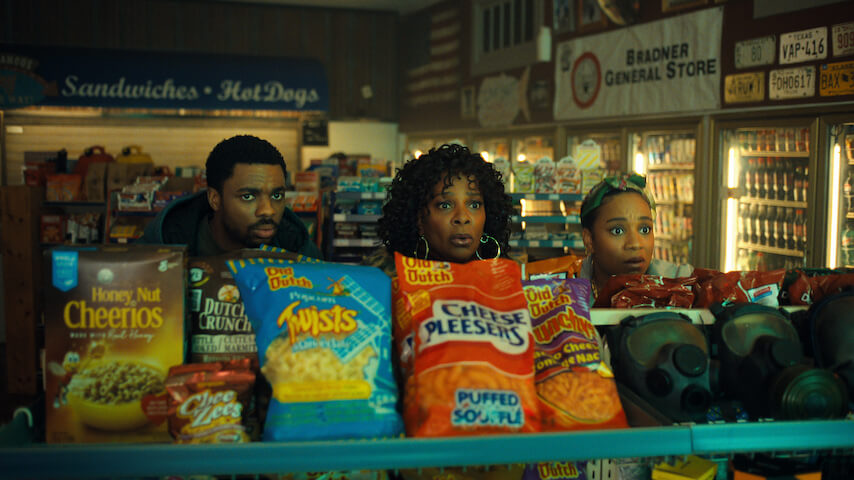The Vince Staples Show turns bereavement into a bizarre and very funny odyssey
In season two, the rapper's Netflix series raises emotional stakes without watering down its chaotic comedy.
Photo: Netflix
Vince Staples is funny. Whether he is so innately humorous that he cannot help it, or he has painstakingly worked on crafting a persona so precise that delivering a eulogy on his series and lauding Ray J in an interview makes your eyes water, is up for debate. And with season two of The Vince Staples Show, the rapper and actor convinces you that he’s as sharp as ever and that the first batch of his Netflix series was no fluke.
Whether he is rapping or snaking his way through a Lynchian nightmare with echoes of Curb Your Enthusiasm in this show, Staples has never treated fame like a triumph. It is more of a recurring inconvenience, a running joke about being recognized but not respected for a role on Abbott Elementary. The Vince Staples Show has always turned his perspective into something surprisingly relatable, a half-hour meditation on the frustration of being perpetually out of step with your surroundings and unsure how your baggage is affecting each interaction. Season two now raises the emotional stakes, transforming its linked adventures into a story about grief, identity, and the impossible task of holding it together while the world insists on falling apart.
For anyone who only knows Staples as a rapper, the series feels like the logical next verse after albums like Summertime ’06, Big Fish Theory, and Ramona Park Broke My Heart, which mapped the anxiety of success with the same deadpan wit that drives this show. Whether he is being humbled by his family or praised by the public, it almost always proves an existential threat. The comedic heights are reached in the earlier episodes here, where he interacts with his quick-witted but belligerent mother Anita (Vanessa Bell Calloway) and sister Bri (Naté Jones) as they journey through cursed car rental spaces and ominous gas stations to their uncle James Brown’s will reading and eventual funeral.
There are easy comparisons to make here with other Black creatives who have built comedy series loosely based on their own personas and idiosyncratic tastes, but The Vince Staples Show feels like its own beast. While it builds an extremely funny and intriguing foundation, it also has specific insights into the Black stardom that Staples seeks to reject. And over these six episodes, the show tightens its focus without losing the chaotic energy from season one, which felt like a series of loosely connected shorts. What begins as the private loss of his O.J. Simpson-coded uncle becomes a journey that drags Vince through a gauntlet of errands, detours, and moral tests, with each episode following from the last but still feeling self-contained.
 Keep scrolling for more great stories.
Keep scrolling for more great stories.
